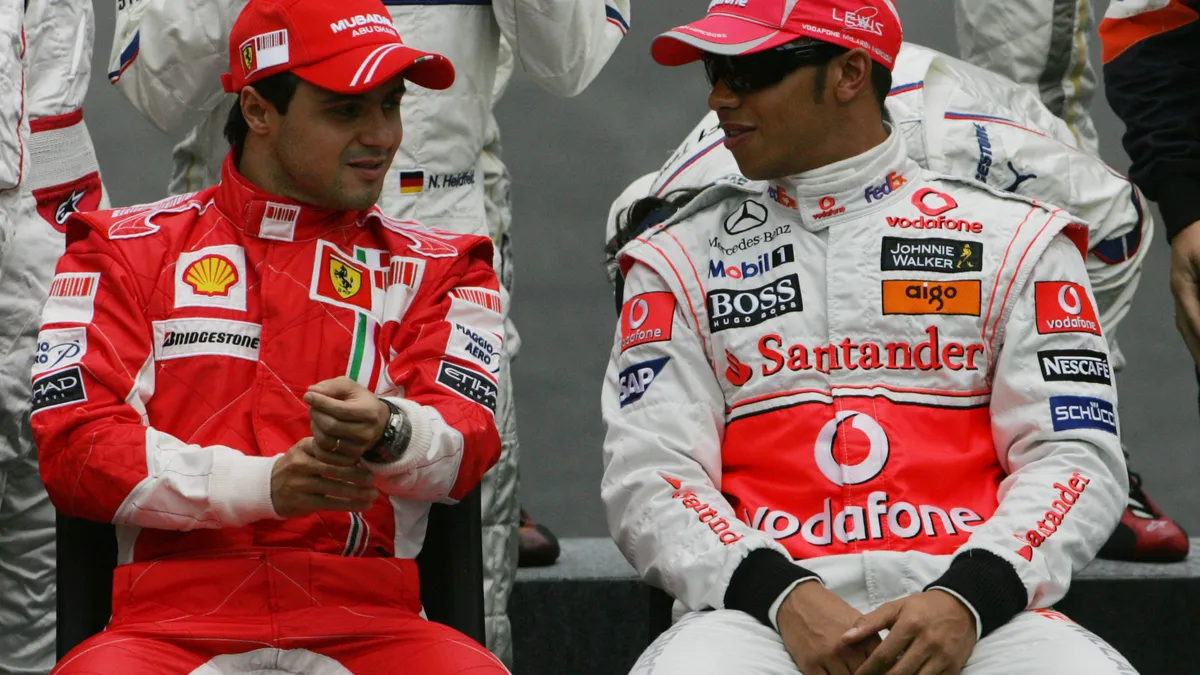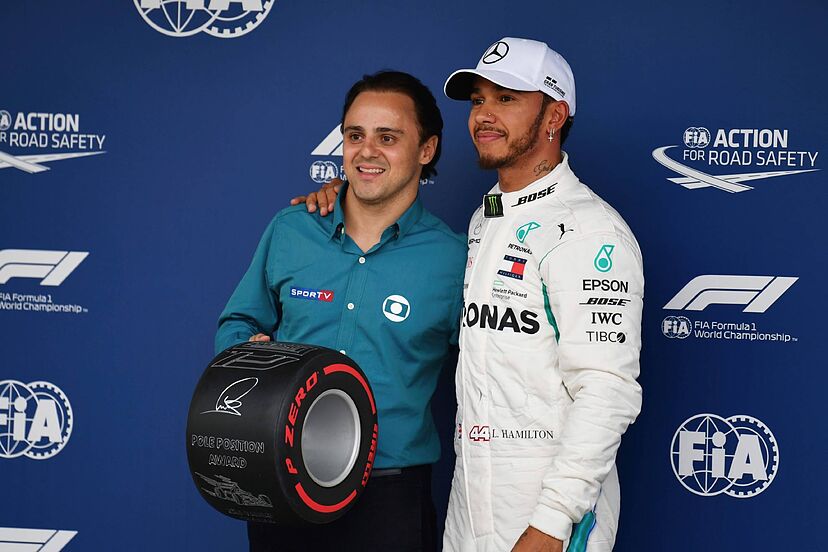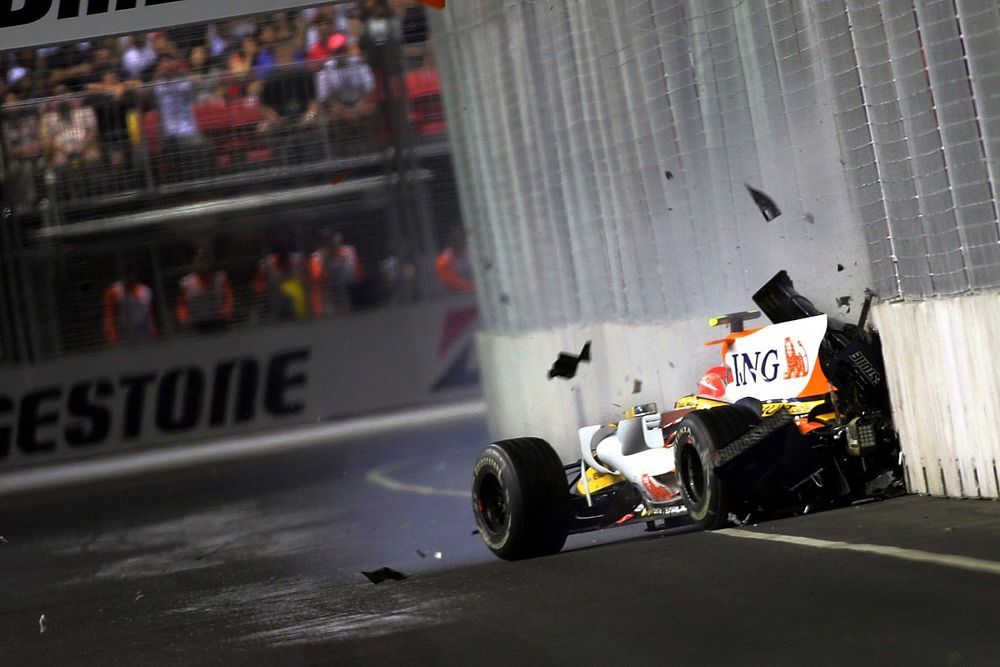In the high-stakes, high-octane world of Formula 1, legends are forged in fractions of a second and history is written by the smallest of margins. Yet, what happens when a victory, etched into the official record books and celebrated for over a decade, is revealed to have been tainted by fraud and willful concealment?
This is the core question at the heart of the most explosive legal battle the sport has ever faced, one that threatens to upend the foundational integrity of motorsport and potentially strip one of its greatest champions, Lewis Hamilton, of his very first World Championship.
Fifteen years after the most heart-stopping championship finale in recent memory, former Ferrari star Felipe Massa has launched a colossal $82 million lawsuit in the High Court of London. His targets are Formula 1 Management, the sport’s governing body the FIA, and former F1 supremo Bernie Ecclestone.
Massa’s claim is audacious, deeply personal, and financially immense: he argues the 2008 World Championship was stolen from him due to a deliberate cover-up of the infamous ‘Crashgate’ scandal, a conspiracy the sport’s leaders knew about but chose to ignore.

The Agony of Interlagos: How One Point Changed Everything
To understand the emotional furnace driving Massa’s relentless pursuit of justice, one must first revisit the climactic conclusion of the 2008 season. It was a year of gladiatorial combat between the young, fiercely quick Lewis Hamilton and the consistent, tenacious Felipe Massa. Every corner, every pit stop, and every point was crucial, leading to a nail-biting showdown at the Brazilian Grand Prix in São Paulo—Massa’s home race.
Massa, driving for the storied Scuderia Ferrari, performed flawlessly. He dominated the race, crossing the finish line in first place, momentarily believing he had clinched the championship. The Ferrari garage and the Brazilian crowd erupted in euphoria, a passionate release of years of hard work. For a few agonizing, suspended moments, Felipe Massa was the Formula 1 World Champion.
But the fate of the title was still on the track, where Lewis Hamilton was fighting for the fifth-place finish he needed to secure the championship. In a moment of high-tension drama that remains one of the most iconic in F1 history, Hamilton made a last-corner pass on Timo Glock, snatching the fifth position just meters before the checkered flag. The single point earned by that last-gasp move was enough. Hamilton was crowned champion, leading Massa to realize, as he stood on the podium, that the title had slipped from his grasp by the slimmest possible margin: one point.
The televised heartbreak of Massa, who showed immense dignity while processing the devastating news in front of his home fans, became a defining image of the season. Yet, the anguish of that moment was not solely due to on-track performance; it was a consequence of a fraudulent event that had occurred months earlier, an event that Massa’s team now argues fundamentally corrupted the championship’s result.
The Ghost in the Machine: Unpacking the Crashgate Scandal
Central to Massa’s legal challenge is the 2008 Singapore Grand Prix, a race that delivered the most shameful conspiracy in modern F1 history—the ‘Crashgate’ scandal.
On Lap 14 of the race, Nelson Piquet Jr., driving for the Renault F1 team, intentionally crashed into the wall at Turn 17. This was no accident. The crash was a calculated, pre-planned action ordered by Renault’s team principal, Flavio Briatore, and chief engineer, Pat Symonds. The goal was simple, yet strategically devastating: trigger the safety car deployment to directly benefit Piquet’s teammate, Fernando Alonso, who had pitted just moments before the crash.
The deployment of the safety car caused chaos in the pits, forcing race leaders, including Massa, to scramble for an immediate stop. What followed for Massa was a catastrophic sequence of errors: during his emergency pit stop, the Ferrari team made a critical mistake, deploying him with the fuel hose still attached to his car. Massa was forced to stop, allowing rivals to pass, and ultimately received a drive-through penalty for the incident. Massa finished the race 13th, outside the points entirely.
Had the Singapore race been clean, Massa would have certainly scored high-value points. The difference between his zero points and Hamilton’s result in Singapore (which was also affected by the safety car chaos, but less catastrophically) was directly influenced by the intentional crash. Massa’s lawyers highlight that this single, manipulated race provided the one-point swing that ultimately decided the World Championship.

The Legal Bombshell: Evidence of a Cover-Up
While the Crashgate scandal officially broke in 2009, leading to severe penalties for the Renault team (Briatore and Symonds were banned), the FIA chose not to annul the Singapore race results. Their justification was the long-standing precedent that championship results are considered final once the season concludes—the ‘Principle of Finality.’
However, the legal landscape shifted dramatically in 2023 when former F1 chief Bernie Ecclestone made public statements confirming a critical, concealed truth: the FIA leadership, specifically then-President Max Mosley and himself, knew about the deliberate nature of Piquet’s crash during the 2008 season, but chose to ignore it and cover it up to avoid a scandal that could damage the sport.
Massa’s lawsuit contends that this inaction and concealment constitute a profound breach of contract and a duty of care owed to the drivers. The argument hinges on the idea that the ‘Principle of Finality’ cannot be used to protect deliberate fraud and a cover-up. The new evidence, Ecclestone’s admission, transforms the case from a historical dispute into a current matter of justice for an alleged crime.
The Astronomical Stakes: $82 Million and a Legacy
Massa’s claim is not just about a historical trophy; it carries an astronomical price tag of $82 million. This figure reflects the profound financial repercussions of losing the championship. A Formula 1 World Champion is not just an athlete; they are a global brand. The title exponentially increases a driver’s financial value, leading to dramatically higher salaries, endorsement deals, and career opportunities.
Experts estimate that the difference between being a World Champion and a runner-up can translate into tens of millions of dollars over a driver’s career lifetime. Massa’s $82 million claim is a calculated demand for compensation, representing the lost sponsorships, endorsements, and bonuses that would have been his had he achieved the coveted title. For Massa, the lawsuit is both a quest for moral justice and a fight for the restitution of a career-defining moment stolen by circumstances outside his control.

The Defense of Finality: A Precedent in Jeopardy
F1, the FIA, and Bernie Ecclestone have mounted a robust, unified defense. Their primary and most powerful argument is that Massa’s claim is time-barred. They assert that the legal limit for challenging the 2008 results expired years ago, and allowing the case to proceed now would set a dangerous and potentially paralyzing precedent.
The defendants argue that the Principle of Finality is the essential bedrock of all sporting competition. Without it, every past championship, from every sport, could be questioned and challenged based on new revelations or historical controversies. Allowing Massa’s case to move forward, they argue, would destabilize the very foundation of Formula 1, opening the door to an endless stream of lawsuits and the wholesale rewriting of history. They insist that the integrity of the sport depends on the absolute finality of the declared results.
History Hangs in the Balance
The legal fight reached a critical point in late 2025 with a decisive three-day hearing in the High Court. Lawyers for Massa argued that deliberate fraud and a subsequent cover-up invalidate the Time Bar defense, while the defendants forcefully countered that legal principles of finality must be preserved to protect the sport’s history and structure.
The presiding judge has reserved judgment, leaving the entire F1 community in a state of tense anticipation. The preliminary ruling will determine whether Massa’s challenge is allowed to proceed to a full trial. Should it go to trial, the subsequent disclosure of internal communications from the FIA and F1 between 2008 and 2009 could be devastating, pulling back the curtain on one of the sport’s darkest chapters.
This case is about more than money or a line in a record book. It is a profound test of whether justice in sport can truly be served, even if it means confronting and correcting historical injustices years after the fact. The judge’s final decision will be a landmark ruling that will either reinforce the traditional, unshakeable finality of sporting outcomes or establish a powerful new precedent that governing bodies must be held accountable for concealed information and deliberate manipulation.
Lewis Hamilton may have secured his first championship on the track in a moment of pure sporting brilliance, but the final, true story of 2008 is now being decided in a silent, high-stakes courtroom. History, legacy, and millions of dollars hang in the balance, proving that for Felipe Massa, the greatest race of his life is being fought long after the checkered flag first fell.